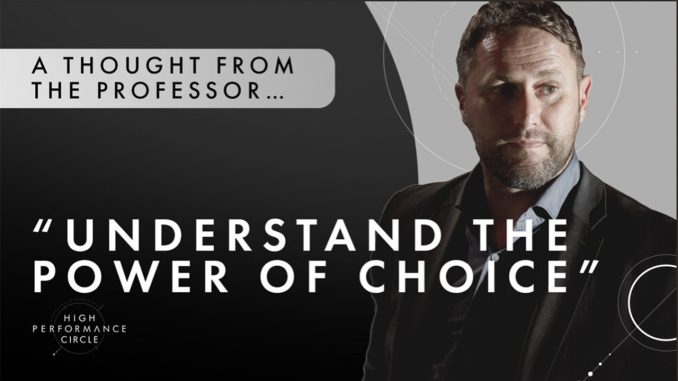
In today’s rapidly evolving world, the concept of choice in education has emerged as a powerful catalyst for personal growth, institutional innovation, and societal progress. The traditional model of education—often rigid, standardized, and uniform—has given way to a more dynamic landscape where learners are increasingly empowered to shape their own paths. This shift is not merely a matter of convenience or preference; it reflects a deeper understanding of how autonomy, relevance, and engagement drive meaningful learning outcomes. When students are given the opportunity to choose what, how, and where they learn, they are more likely to take ownership of their education, develop critical thinking skills, and cultivate a lifelong love of learning.
The power of choice begins with curriculum flexibility. In many educational systems, students now have access to a wide array of subjects, electives, and interdisciplinary programs that allow them to explore their interests and align their studies with future career aspirations. For instance, a student passionate about environmental sustainability might combine courses in biology, economics, and public policy to build a unique academic profile. This kind of customization not only enhances motivation but also prepares students for the complexities of the modern workforce, where cross-functional knowledge and adaptability are highly valued. Moreover, choice in curriculum fosters creativity and innovation, as students are encouraged to think beyond conventional boundaries and pursue novel solutions to real-world problems.
Beyond subject matter, the mode of learning itself has become a domain of choice. The rise of digital platforms, hybrid models, and experiential learning opportunities has expanded the ways in which education can be delivered and consumed. Learners can now choose between in-person classes, online modules, project-based experiences, and even immersive simulations. This flexibility accommodates diverse learning styles and life circumstances, making education more inclusive and accessible. For example, working professionals seeking to upskill can enroll in evening online courses without disrupting their careers, while students in remote areas can access high-quality instruction that was previously out of reach. The democratization of educational delivery methods underscores the importance of choice as a tool for equity and empowerment.
Institutional choice also plays a critical role in shaping educational outcomes. With the proliferation of charter schools, private institutions, vocational programs, and alternative learning centers, families and individuals can select environments that best suit their values, goals, and needs. This competitive landscape has prompted many schools to innovate and differentiate themselves, leading to improvements in teaching quality, curriculum design, and student support services. While debates around school choice often center on policy and funding, the underlying principle remains clear: when learners and their families have agency in selecting educational institutions, they are more likely to find environments where they thrive. This alignment between personal priorities and institutional offerings can significantly enhance engagement, retention, and achievement.
Choice in education also extends to assessment and evaluation. Traditional exams and standardized tests, while still prevalent, are increasingly supplemented or replaced by alternative methods such as portfolios, presentations, peer reviews, and self-assessments. These approaches allow students to demonstrate their understanding in ways that reflect their strengths and preferences. A student who struggles with timed tests might excel in a collaborative project or a research paper. By offering multiple avenues for assessment, educators can foster a more holistic and accurate picture of student learning. This not only reduces anxiety and disengagement but also encourages deeper reflection and self-awareness among learners.
The psychological impact of choice cannot be overstated. Research in behavioral science consistently shows that autonomy enhances motivation, satisfaction, and performance. When students feel that they have a say in their educational journey, they are more likely to invest effort, persist through challenges, and take pride in their accomplishments. This sense of ownership transforms education from a passive experience into an active pursuit. It also cultivates essential life skills such as decision-making, goal-setting, and self-regulation. In a business context, these competencies are invaluable, as they translate directly into leadership potential, strategic thinking, and resilience.
However, the power of choice in education is not without its challenges. Too many options can lead to decision fatigue, confusion, or misalignment with long-term goals. It requires thoughtful guidance, robust support systems, and clear communication between educators, students, and families. Institutions must strike a balance between offering flexibility and maintaining coherence, ensuring that choices are meaningful and informed. Advising services, mentorship programs, and data-driven tools can help learners navigate their options and make choices that serve their best interests. In this way, choice becomes not just a privilege but a responsibility—one that demands maturity, reflection, and collaboration.
Ultimately, the power of choice in education reflects a broader shift toward personalization, agency, and relevance. It recognizes that learners are not monolithic and that education must evolve to meet the diverse needs of individuals and communities. By embracing choice, we create systems that are more responsive, innovative, and humane. We empower students to become architects of their own futures, equipped not only with knowledge but with the confidence and clarity to use it well. In doing so, we lay the foundation for a more vibrant, equitable, and forward-thinking society—one where education is not just a destination, but a journey shaped by the choices we make.